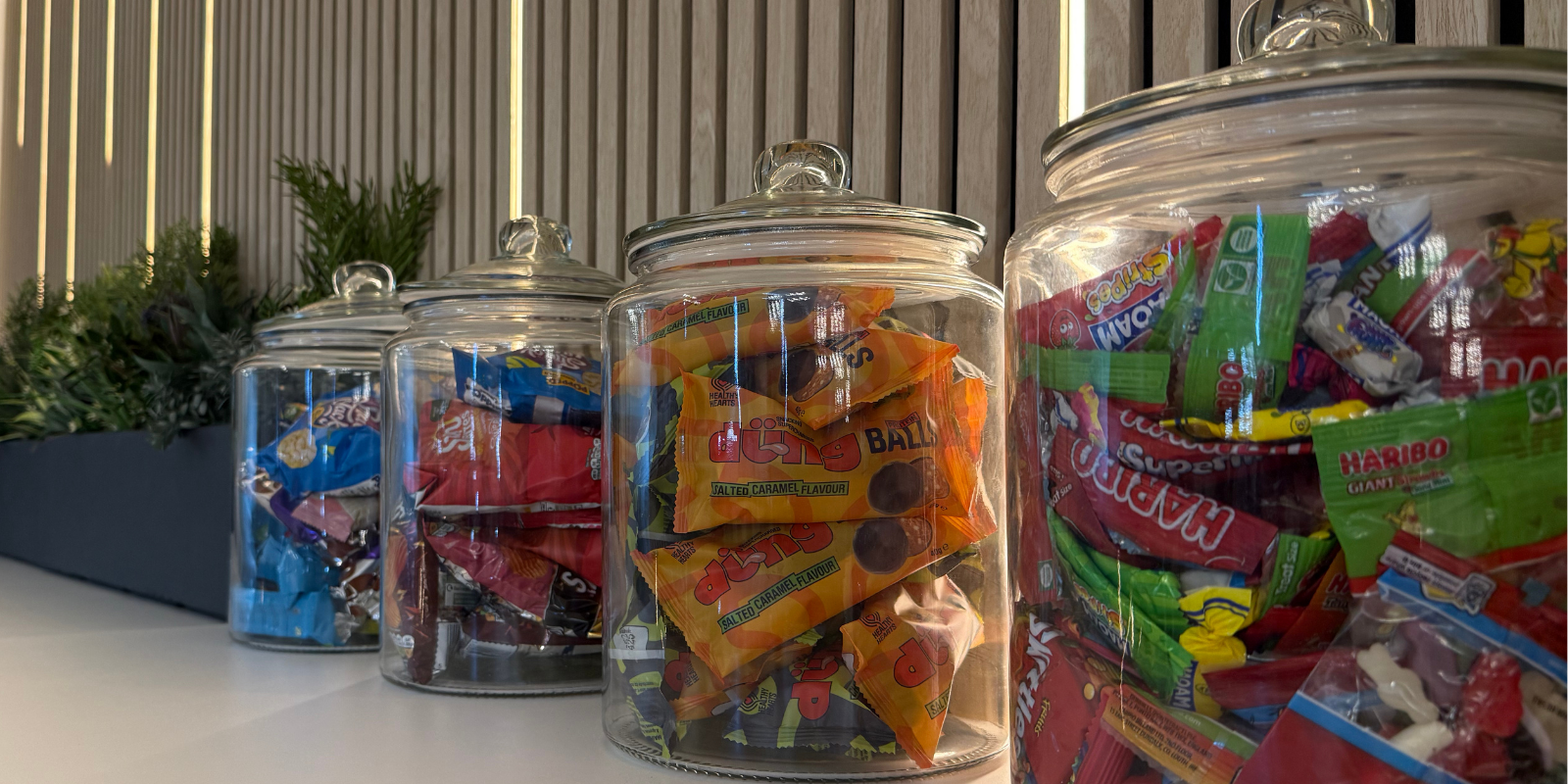

· By Olivia Silverthorne
Quick energy swaps: from sugary fixes to lasting fuel
We love to talk about sustainable energy here at Düng and for good reason.
Fuelling your body with foods that provide sustainable energy, means that you're not relying on quick spikes and crashes, giving you the stamina to power through your day.
In this blog post were going to give you some smart swaps can use to fuel your day for the long haul.
The science behind why quick sugary fixes don’t work
Common snacks such as crisps, chocolate bars, pastries and energy drinks so many of us tend to reach for when were craving a pick me up are often full of sugar and refined carbohydrates.
These types of foods are digested quickly by your body as they are made up predominately of simple carbohydrates and lack fibre, this means that they cause a rapid surge of glucose in to your blood stream.
In response to this glucose spike, your body then releases insulin, which in turn helps to move the sugar from your blood stream to your cells for energy.
So if inulin is moving the sugar to your cells what’s the problem? This issue presents itself when inulin sometimes overcompensates and lowers our blood sugar too quickly. This sudden drop is what causes that dreaded crash feeling we often get after too much sugar, leaving us fatigued, sluggish and craving more sugar for a quick energy boost.
In the longterm constantly relying on your body to combat these sharp spikes in glucose can affect your metabolic health and can even lead to issues such as type 2 diabetes and cardiovascular disease.
The best foods for sustainable energy
So, what should you actually eat (and drink!) if you want energy that lasts all day, not just for an hour? It really comes down to four main players: protein, healthy fats, fibre, and something often overlooked, hydration. Let’s break down why each one matters.
Protein
Unlike refined carbs that burn up quickly, protein takes longer for your body to digest. This slower breakdown provides a more gradual release of energy instead of a sharp spike-and-crash. Protein also plays a direct role in blood sugar control by stimulating the release of hormones like GLP-1 and insulin, which help regulate glucose levels. On top of that, it keeps you fuller for longer, reducing cravings and the likelihood of reaching for sugary snacks.
Healthy Fats
Think avocados, olive oil, nuts, and seeds. These healthy fats help to slow down how quickly carbs are digested and absorbed. This buffering effect helps prevent sharp spikes when fats are eaten with carbs. Healthy fats also promote satiety and support hormone production, which keeps your energy and mood stable between meals.
Fibre
Fibre doesn’t just help keep your digestion moving smoothly, it’s also a blood sugar superhero. By slowing down the absorption of sugar into your bloodstream, fibre helps prevent those mid-afternoon crashes that leave you feeling drained. Whole grains, veggies, and legumes are great sources to add to your plate.
Hydration
Here’s the sneaky one most people forget: water. Staying hydrated is absolutely key for maintaining energy. When you’re dehydrated, your blood thickens, making it harder for your heart to pump it efficiently around your body. That means your body has to work harder just to keep up, leaving you feeling sluggish and tired. A simple glass of water can sometimes be a bigger energy boost than another coffee.
Easy swaps you can make
- Instead of: Coffee and a doughnut → Try: A cup of green tea with wholegrain toast topped with almond butter
- Instead of: Energy drink → Try: Sparkling water and a handful of mixed nuts
- Instead of: Packet of crisps → Try: Roasted chickpeas or carrot sticks with humous
- Instead of: Chocolate bar → Try: A couple of squares of dark chocolate (70% or higher) with walnuts
- Instead of: Sugary cereal → Try: Greek yoghurt with fresh berries and a sprinkle of oats
- Instead of: White bread sandwich with processed meat → Try: Wholegrain wrap with chicken, avocado, and salad
- Instead of: Fizzy drink → Try: Infused water with cucumber and mint
- Instead of: Pastry for breakfast → Try: Overnight oats made with oats, chia seeds, and fruit
- Instead of: Biscuits with tea → Try: Oatcakes with cheese or nut butter
- Instead of: Instant noodles → Try: Quinoa or brown rice with vegetables and tofu/chicken
Remember, although making these swaps will absolutely boost not only your energy levels but also your overall health, it doesn’t mean you need to cut out sugary or refined-carb foods completely.
In fact, banning them altogether can sometimes backfire. When you never allow yourself to enjoy the foods you crave, you’re far more likely to give in eventually and when you do, it might lead to eating a lot in one go or even abandoning your healthy habits entirely.
A much healthier (and happier) approach is balance. If you fancy a slice of cake or a biscuit, have it, just try pairing it with foods that are rich in fibre, protein, or healthy fats.
For example, enjoy that chocolate bar with a handful of nuts, or have your biscuit alongside some Greek yoghurt. By combining the sugar with slower-digesting foods, you’ll prevent such a sharp blood sugar spike, meaning the treat is gentler on your body and far less likely to leave you crashing an hour later.
Lifestyle changes for steady energy
Food is just one piece of the energy puzzle, your daily habits play a huge role too. Sometimes, a quick, non-food boost is all you need to feel more alert and focused.
- Move your body: Even a five minute walk around the office or a few stretches at your desk can increase blood flow and oxygen to your muscles and brain, giving you a natural lift.
- Hydrate: Drinking water consistently helps your body transport nutrients efficiently, keeps your blood flowing smoothly, and prevents that sluggish, dehydrated feeling.
- Breathe deeply: Simple breath work or a few mindful breaths can calm your nervous system, improve circulation, and give your energy levels a reset.
- Sunlight and fresh air: Stepping outside for a few minutes can help regulate your body clock, boost vitamin D, and instantly refresh your mind.
By combining these small habits with balanced nutrition, you’re not just chasing quick energy spikes, you’re building habits what will give you sustainable energy, not just through your day but for the rest of your life!
Final thoughts
Boosting your energy doesn’t have to mean giving up the foods you love or relying on endless caffeine fixes. By making simple swaps, focusing on protein, fibre, healthy fats, staying hydrated and pairing them with small lifestyle habits like movement and fresh air, you can enjoy steady, lasting energy throughout the day. Remember, it’s all about balance: a little treat here and there is fine, as long as the foundation of your diet and habits keeps your body fuelled and thriving.
